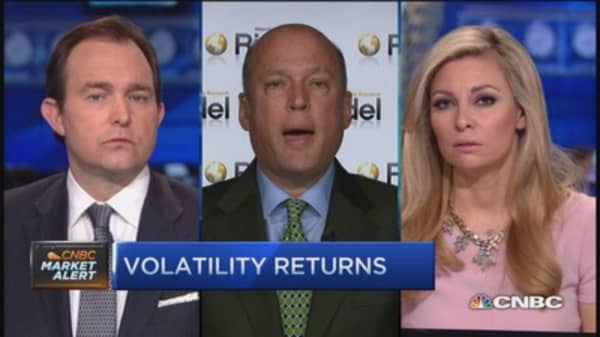Given the crash in commodities, slowing global growth, turmoil in emerging markets and real troubles in oil-dependent nations, the Fed may surprise the world by maintaining the verbiage that has kept a floor under asset prices and assured markets that no influences, inside, or outside, the U.S. will keep the Fed from meeting its dual mandate of maximum sustainable employment and stable prices, which today means gently rising inflation.
I have been of the mind that given a variety of external risks posed to the U.S. economy, the Fed will, despite its usual, and sole, focus on domestic variables, wait to raise interest rates until policy makers are certain that ill winds that blow from overseas will not threaten the domestic expansion. It is typically not within the Fed's mandate to concern itself with external factors, or exogenous events, but it would be foolish not to do so now.
Read MoreThis could be Putin's surprise move: expert
While it is true that the plunge in energy prices will provide a tailwind to the U.S. economy going forward, as disposable income gets a boost from cheaper gas, heating oil and natural gas prices, it is also true that the precipitous decline in the prices of energy products is creating a potential crisis in the high-yield bond market, which has been used to finance speculative energy projects that may soon prove quite unprofitable. The plunge in prices is already leading to a cutback in capital-spending plans among energy companies who fear falling prices will lead to sizable losses on marginal wells. That, in turn, could lead to fewer jobs created in the energy patch, one of the few areas in the economy that offers high-paying, value-added jobs. The Fed cannot look at falling oil prices only as a tailwind. Some headwinds will be whipped up as well.
A mini-panic in high yield, if it hasn't begun already, could emerge as a serious market disruption, like the collapse of Long-Term Capital Management in 1998, the Asian currency crisis in 1997, or the Mexican Peso crisis in 1994. Overnight, Russia raised its key lending rate from 10.5 percent to a whopping 17 percent in an effort to halt the ruble's slide. This, no doubt, can shove Russia's already teetering economy into recession, or worse.
Indeed, we are witnessing a crisis in emerging market currencies which are plunging, thanks to a rising dollar, expectations for tighter monetary policy in the U.S., and the crash in crude.
Read MoreFed rate hike expected in summer: Survey
It would be wise for the Fed not to send signals to the market that might have to be taken back, if the commodity crash complicates the outlook for global and, by extension, domestic economic growth.
There is a god chance "considerable time" is on its way out, but, hopefully, the Fed will offer another conditional scenario in which it could forestall raising interest rates if a crisis of confidence should rattle domestic and global markets.





